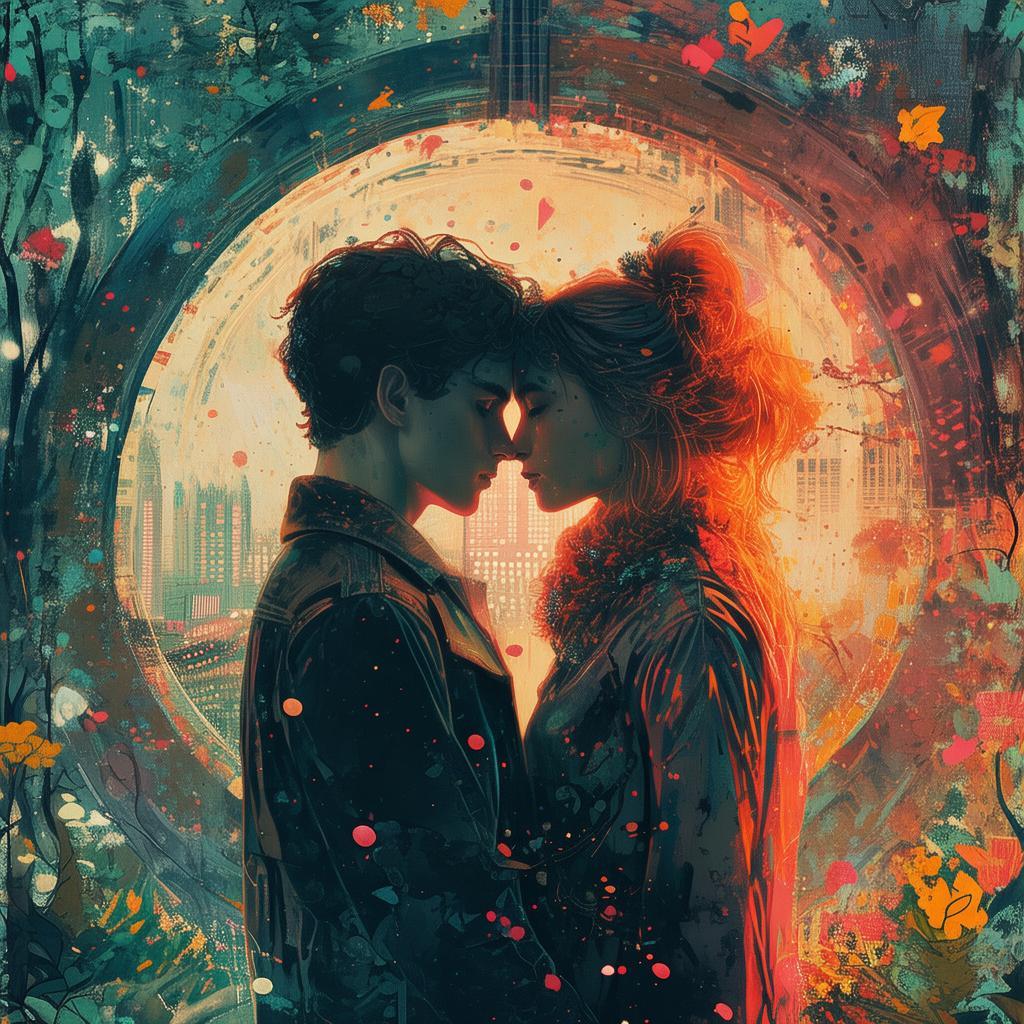The Love of the Lute Player
In the heart of the ancient city of Nineveh, where the air was thick with the scent of incense and the sound of lyres, there lived a lute player named Aria. His fingers danced across the strings with a grace that was said to be divine, and his music could move the very soul of the listener. Aria was more than just a musician; he was a virtuoso, a master of his craft, and his name was whispered in hushed tones throughout the city.
The story begins in the grand hall of the palace, where the King of Nineveh, a man of great wealth and power, was hosting a grand feast. Among the guests was the Princess Isadora, a beauty whose eyes held the secrets of the cosmos and whose presence could silence even the most boisterous of crowds. Aria was assigned to play for the festivities, and as he began to strum his lute, the room fell into a hush, captivated by the melody that seemed to weave through the very fabric of reality.
Isadora, who had been the recipient of countless suitors and poets, found herself entranced by the music. She watched the lute player with a mixture of awe and curiosity, and when the music finally ceased, she stood and approached him. "Your music is like the whispering winds of the desert," she said, her voice as smooth as silk. "Tell me, who are you, and how do you know the songs of the stars?"
Aria, taken aback by the princess's boldness, found himself drawn to her. "I am Aria, a lute player of modest means," he replied. "The songs of the stars are the language of my soul, a language that I have learned from the whispers of the wind and the murmur of the waves."
From that night on, Aria found himself in the company of Isadora more often than not. They shared stories of their lives, of their dreams, and of their loves. Aria, who had never before been in love, found himself deeply in the princess's affection. But their love was forbidden, for Isadora was the daughter of the king, and Aria was a commoner, a man of the streets.
The king, who had been watching the pair with a mixture of envy and concern, decided that he must act. He summoned Aria to his presence and, in a voice that was like ice, he said, "Aria, you are a gifted musician, but your love for Isadora is a stain upon the honor of my kingdom. Choose: either end your relationship with her, or face the consequences."
Aria, knowing the weight of his decision, knew that he must choose between his love and his life. "My love for Isadora is as deep as the ocean," he said, his voice steady despite the turmoil within him. "I cannot forsake her."
The king, not one to be trifled with, ordered Aria's execution. But before the sentence could be carried out, Isadora, hearing of Aria's impending doom, rushed to the king. "My father, please," she pleaded, her eyes brimming with tears. "Aria is a man of great talent and a kind heart. His love for me is true, and to take his life is to take a piece of my soul."
The king, touched by his daughter's plea, relented. "Very well," he said, "but Aria must leave Nineveh and never return. His love for you is forbidden, but his life is spared."
Aria, grateful for the reprieve, kissed Isadora goodbye and set out on the road that would take him away from the city he loved. As he traveled, he composed a lute piece that would become his farewell to Isadora, a piece that would speak of his love and the pain of their separation.
In the years that followed, Aria traveled far and wide, playing his lute for audiences who had never heard music like his. His piece, "The Love of the Lute Player," became famous, and it was said that the very strings of the lute would weep with the pain of his love for Isadora.

One day, as he played in a distant land, Aria felt a presence behind him. He turned to see Isadora, her eyes filled with tears. "Aria," she whispered, "I have come to see you. I have left everything behind to be with you."
Aria, overwhelmed with emotion, embraced Isadora, and together they played their lute, the music of their love filling the air. The king of Nineveh, hearing of their reunion, came to see for himself the power of love. He watched as Aria and Isadora played, their music transcending time and place, and he realized that love was a force that could not be contained by the bounds of society or by the dictates of power.
And so, Aria and Isadora lived out their days in peace, their love a testament to the power of music and the enduring strength of the human heart.
✨ Original Statement ✨
All articles published on this website (including but not limited to text, images, videos, and other content) are original or authorized for reposting and are protected by relevant laws. Without the explicit written permission of this website, no individual or organization may copy, modify, repost, or use the content for commercial purposes.
If you need to quote or cooperate, please contact this site for authorization. We reserve the right to pursue legal responsibility for any unauthorized use.
Hereby declared.









